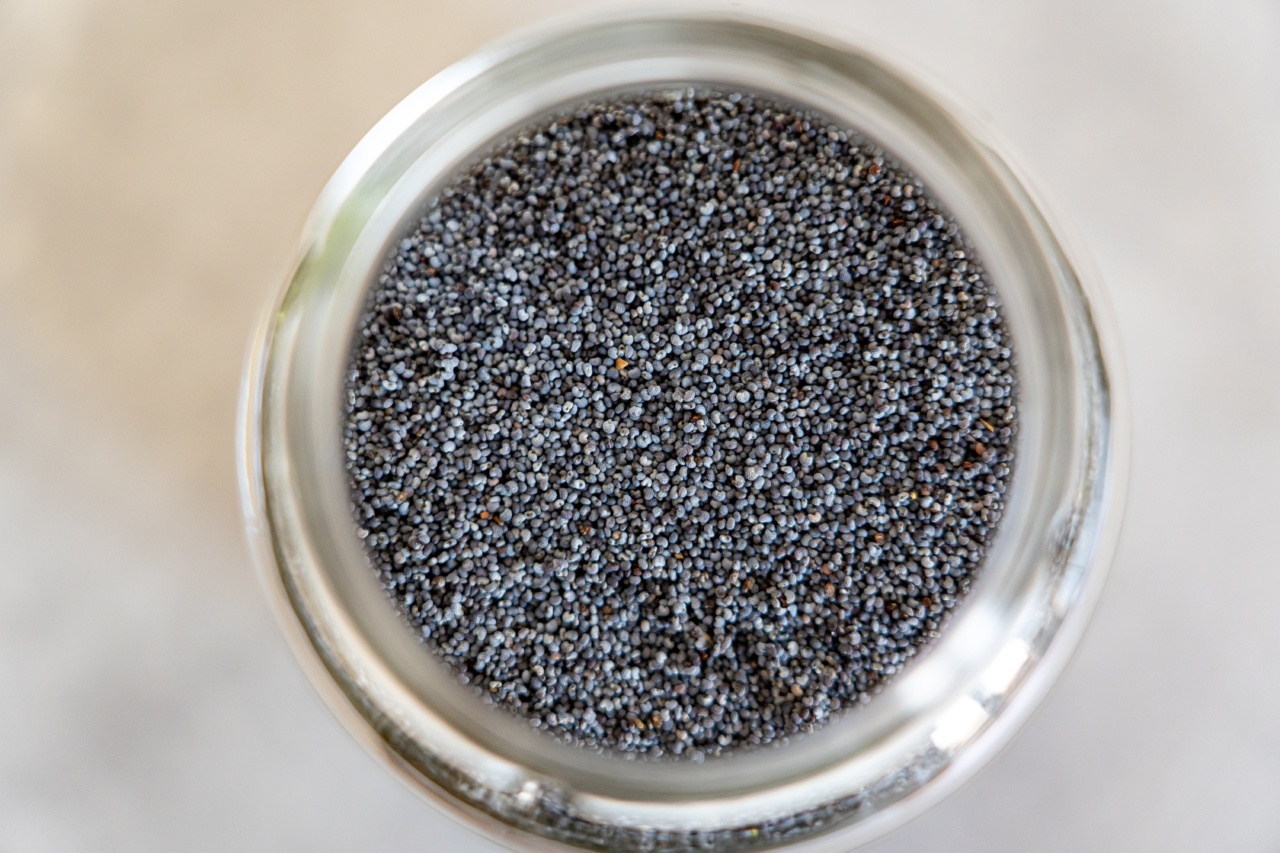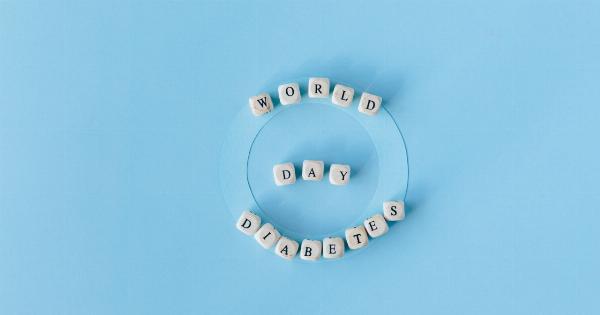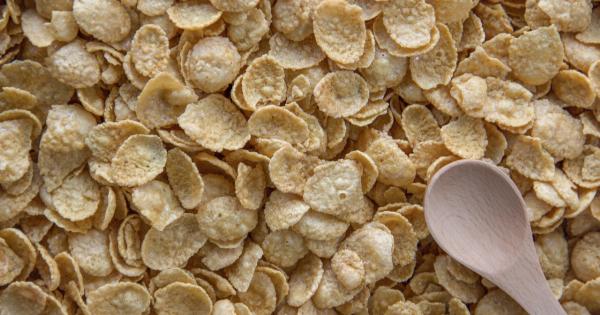Fiber is an essential component of a healthy diet. It plays a crucial role in maintaining proper digestion, regulating blood sugar levels, and promoting heart health.
However, like with anything, consuming too much of it can be detrimental to your well-being. In this article, we will discuss the risks associated with excessive fiber intake and why it’s crucial to avoid consuming more than 10 grams per day.
1. Digestive Issues
While fiber is beneficial for your digestive system, consuming excessive amounts can lead to unpleasant digestive issues. One of the primary risks is the development of constipation.
High-fiber diets require an adequate intake of fluids to prevent the fiber from absorbing too much water in the colon. Without enough hydration, fiber can become compacted and hinder regular bowel movements.
Additionally, excessive fiber consumption can cause bloating, gas, and abdominal discomfort. This is especially true for individuals who rapidly increase their fiber intake without allowing their bodies time to adjust.
It’s important to gradually increase your fiber intake to allow your digestive system to adapt to the changes.
2. Nutrient Absorption Interference
Consuming excessive fiber can interfere with the absorption of essential nutrients, such as minerals and vitamins. Fiber forms a gel-like substance that binds to certain nutrients, preventing their absorption in the small intestine.
Over time, this can lead to deficiencies in crucial vitamins and minerals, including iron, calcium, zinc, and magnesium.
Individuals who rely solely on a high-fiber diet and do not consume a variety of nutrient-rich foods may be at a higher risk of experiencing deficiency-related symptoms.
It’s essential to strike a balance between fiber intake and consuming a diverse range of nutrient-dense foods.
3. Malnutrition Risks
When excessive fiber intake interferes with nutrient absorption, it can significantly impact your overall nutrition. In severe cases, where individuals consume extremely high levels of fiber and lack essential nutrients, malnutrition can occur.
Malnutrition arises when the body doesn’t receive adequate nourishment, leading to deficiencies and potential health complications.
To maintain a healthy diet, it’s crucial to focus on moderation and ensure a well-rounded intake of all necessary nutrients.
4. Disruption of Gut Bacteria Balance
A diverse and balanced gut microbiome is crucial for your overall health and well-being. However, excessive fiber intake can disrupt the delicate balance of gut bacteria.
While fiber is generally beneficial for promoting a healthy gut environment, consuming too much can lead to an overgrowth of certain bacteria.
Overgrowth of gut bacteria can result in symptoms such as excessive gas, bloating, and irregular bowel movements.
It can also lead to an increased risk of developing conditions such as Small Intestinal Bacterial Overgrowth (SIBO) and Irritable Bowel Syndrome (IBS).
5. Stomach Discomfort and Diarrhea
Another risk associated with excessive fiber intake is stomach discomfort and diarrhea. Consuming too much fiber, particularly insoluble fiber found in foods like wheat bran and vegetables, can bulk up stool and lead to loose bowel movements.
This can cause discomfort and frequent trips to the bathroom. Individuals with sensitive digestive systems may be more prone to these symptoms and should be mindful of their fiber intake to avoid gastrointestinal distress.
6. Increased Risk of Intestinal Blockages
High-fiber foods, such as whole grains and certain fruits and vegetables, are generally beneficial for promoting regular bowel movements.
However, excessive fiber intake can increase the risk of intestinal blockages, especially in individuals with certain underlying digestive conditions.
Individuals suffering from conditions like diverticulosis or inflammatory bowel disease (IBD) may be more susceptible to complications related to excessive fiber intake.
It’s essential for people with such conditions to consult with their healthcare provider to determine an appropriate fiber intake level that won’t exacerbate their condition.
7. Nutritional Imbalances with Vegan or Vegetarian Diets
Vegan and vegetarian diets are often rich in fruits, vegetables, and grains, making them naturally high in fiber.
While these diets can be nutritious and provide various health benefits, individuals following them should be cautious not to exceed the recommended fiber intake.
Without proper planning and conscious effort, relying solely on plant-based foods can easily result in excessive fiber consumption.
Vegans and vegetarians should monitor their fiber intake and ensure they include a variety of protein, healthy fats, and other essential nutrients in their diet to avoid nutritional imbalances.
8. Impact on Medication Absorption
Excessive fiber intake can also interfere with medication absorption. Some medications require adequate stomach acid and a certain pH level to be effectively absorbed by the body.
However, the gel-like substance formed by excessive fiber can delay medication absorption, reducing its effectiveness.
It’s important to take medication separately from high-fiber meals or dietary supplements to ensure proper absorption.
Consult your healthcare provider or pharmacist for specific instructions regarding the timing of medication consumption in relation to your meals.
9. Increased Risk of Dehydration
Fiber, particularly soluble fiber, absorbs water and increases stool bulk. Consuming excessive fiber without sufficient fluid intake can lead to dehydration.
Dehydration can cause various health concerns, including dizziness, fatigue, and impaired cognitive function.
It’s essential to maintain adequate hydration when consuming a high-fiber diet to avoid dehydration and ensure optimal bodily functions.
10. Psychological Impact
Lastly, the obsession with consuming excessive fiber can lead to an unhealthy relationship with food. Focusing excessively on fiber intake can contribute to disordered eating patterns and mental health issues related to food fixation and anxiety.
Maintaining a balanced diet that incorporates all essential nutrients, rather than obsessing over specific components like fiber, is key to preserving a healthy mindset towards eating.
In conclusion, while fiber is essential for overall health, excessive intake can pose several risks.
To maintain a healthy balance, it’s important to adhere to the recommended daily fiber intake guidelines and consult with a healthcare professional or registered dietitian if you have any specific dietary concerns or conditions.






























